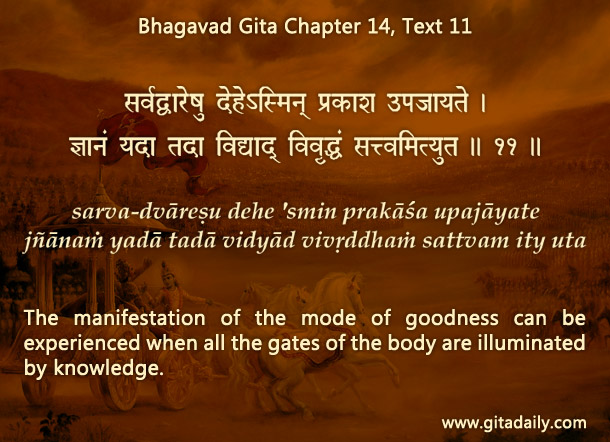Introspection is meant to tune out the louder voices inside us so that we can tune in to the wiser voices inside us.
Suppose we are in a crowded marketplace, as in India. There will be a medley of noises, typically of different sellers promoting their wares. Depending on what we want to buy and our knowledge of how much a commodity costs, we will pay attention to certain voices and not to others. Selection of our focus is basic common sense. However, when we are confronted with a similar melee of voices in our inner world, we often fail to exhibit similar common sense.
In our inner world, there are voices of different desires prompting us to indulge in them with the promise of pleasure. We often get swayed by the loudest voice rather than the wisest one because of three reasons. First, we may not even be aware enough of our inner world to recognize that there are multiple voices and that we don’t have to choose whatever the loudest voice says. Second, we may not be clear about what we want to do and are therefore prone to doing whatever feels good in the moment. Third, we may not have put enough thought into evaluating what desire is worth what price in terms of time, energy, emotion, or entanglement.
Because of our lack of inner awareness, we end up getting sidetracked or even sabotaged in our inner world. We function at best at a suboptimal level and at worst at a self-destructive level. Our actions may ruin our prospects for the future and even damage our present status. If we are to do justice to our God-given abilities, we need to become more self-aware in three areas: the dynamics of the inner world, our aspirations and purposes in life, and the prices that various desires extort, even if they don’t tell us about the price upfront.
These three areas can be summarized through the acronym CAP, which refers to the complexity of the inner world, aspirations that we wish to pursue, and prices that various desires will demand. As we become purified through yoga practices and rise to the mode of goodness, we gain clarity about these states, including what goes on in our inner world (Bhagavad Gita 14.11).
We also become vigilant about what we take in through our senses into our inner world, evaluating whether it nourishes wise or unwise voices. Additionally, we become careful about what we allow to come out of our senses, such as the words we speak, by evaluating whether those actions bring us closer to our cherished purposes or push us away from them.
Through introspective evaluation, we can tune out the louder voices inside us, especially when they are unwise, and focus on the wiser voices, even if they are not loud — just as we would, in an outer marketplace, go to the vendors offering the best deals, even if they are not shouting the loudest.
Summary:
1. Introspection helps us tune out the louder but unwise voices and focus on the wiser voices inside us.
2. Lack of self-awareness can lead us to follow the loudest voices, causing suboptimal or self-destructive actions.
3. Through yoga and self-awareness, we can become more vigilant about the complexity of our inner world, our aspirations, and the costs of desires (CAP acronym).
Think it over:
1. How is our inner world like a marketplace?
2. Why do we often get misled by the louder voices inside us?
3. How can we better navigate our inner world to avoid self-destructive actions?
***
14.11 The manifestation of the mode of goodness can be experienced when all the gates of the body are illuminated by knowledge.


Leave A Comment